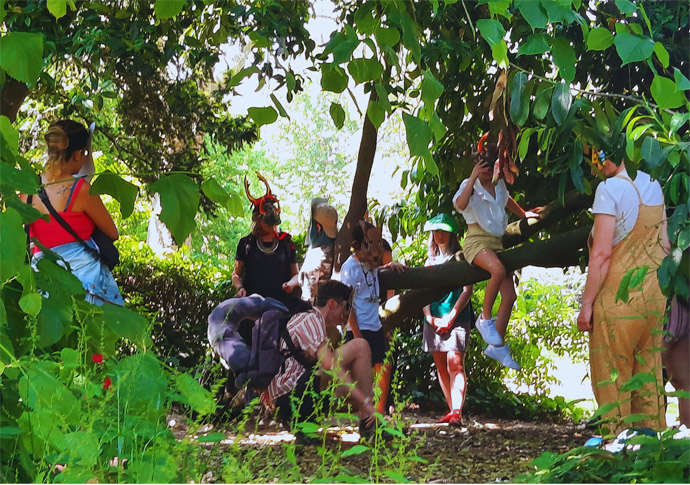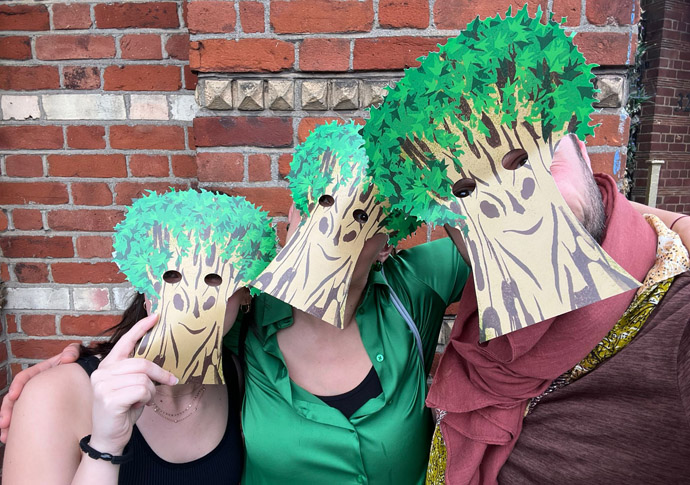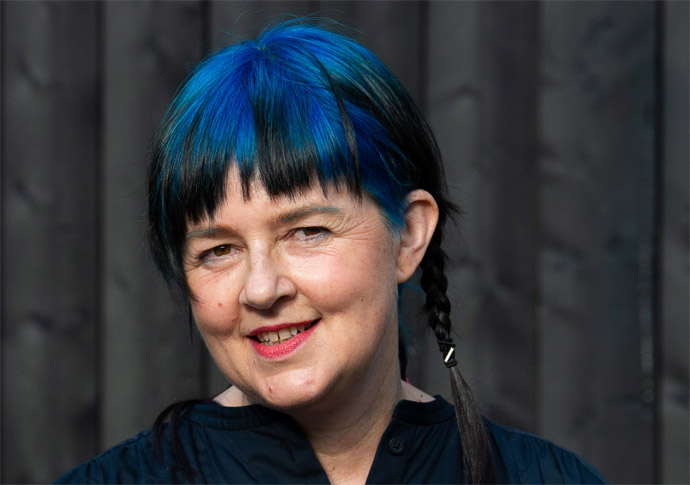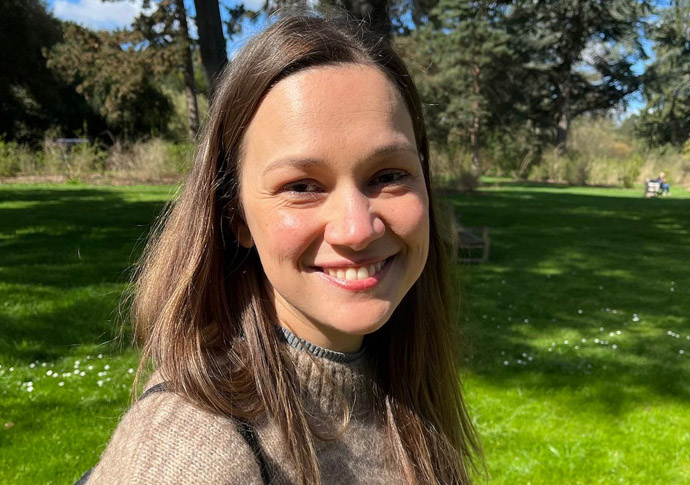Now we know how trees in the park feel!
Role-play festival calls for plants and animals to have the same rights as humans
Friday, 16th June 2023 — By Izzy Rowley

Festival-goers among the trees in Finsbury Park at the event on Saturday
THEY came pretending to be dogs, squirrels and beetles. Others decided to take the role of plain bees.
But members of a group who gathered in Finsbury Park over the weekend, demanding that plants and animals have the same rights as humans, say they have a serious message about increasing our empathy towards the natural world.
Due to be completed in 2025, they are putting all this in writing in what they are calling The Treaty of Finsbury Park.
On Saturday there was a live action role-play festival and contributions to the treaty. This was where they pretended to be another species with participants advocating for each species’ different needs.

Some of those who wore masks for the gathering
“To be honest, at first it was a bit odd, and when I was at home I thought, ‘Oh, I have to dress like a tree’, so I just wore green,” said Dasha Moschonas, who came to the event with her husband and cousin.
“I didn’t really feel like a squirrel, they’re more chaotic. I wanted to be a calm species.”
She added: “I was surprised by the amount of empathy that I grew in a few hours towards trees. Of course, I love trees – who doesn’t love trees? But thinking about things that trees are interested in. Someone said, ‘Think of how many deaths and births of squirrels a tree sees’ – they are these wise, long-term inhabitants in the park. You just start having all of these emotions you wouldn’t have.”
The project to create the treaty began in 2020, after a 2019 Intergovernmental Platform for Biodiversity and Ecosystem Services report was released which revealed that a million species were facing extinction as a result of climate change.

Ruth Catlow [Fiona Hanson]
Ruth Catlow is the artistic director of the Treaty festival and the co-director of Finsbury Park’s Furtherfield gallery, who host the project.
She said: “When that report came out we were just bombarded with catastrophe after catastrophe. The question of what our response could be, what could we do, and how even to feel together about it came up. We wanted to create an experience whereby people could come and build stronger empathy pathways towards other species, and have a space where we could come together and talk about what our priorities would be,” she said.
“It’s a political thing. Over the years, our green public spaces have come to be regarded as assets. But they’re not – they’re public amenities. By really focusing on the lives of the park, there’s this other process going on underneath that asks, ‘What are our parks for? Who are they for?’ And if we change the way we feel about urban green spaces, then maybe we can start to think differently and prioritise differently about other areas of life too.”

Dasha Moschonas
The environmental message behind the project is what attracts participants, and at the end of the five years, a treaty will be drawn up from proposals given during the role-play festivals.
It will then be turned into a billboard and posted on the side of the Furtherfield gallery.
Ms Moschonas said: “I work as an urban designer, and more and more we’re thinking about how to incorporate biodiversity into cities. Just planting a tree isn’t going to create a habitat. We need to think of ways to value these things, and understand that trees aren’t just there to give you shade, they’re organisms.”